More than 2,000 dead after powerful earthquake strikes Morocco: ‘Our neighbours are under rubble’
Rescuers are digging through the rubble of collapsed homes in Morocco for survivors of one of the worst earthquakes to strike the country – with more than 2,000 already declared dead.
The quake that struck in Morocco’s High Atlas mountains late on Friday night also damaged historic buildings in Marrakech – the nearest city to the epicentre – while most of the fatalities were reported in mountainous areas to the south. Many more have been left homeless.
The Interior Ministry said 2,012 people had been killed and 2,059 injured, including 1,404 in a critical condition following the biggest quake to hit the North African country in 120 years.
In the village of Amizmiz near the epicentre, rescue workers picked through rubble with their bare hands. Fallen masonry blocked narrow streets. Outside a hospital, around 10 bodies lay covered in blankets as grieving relatives stood nearby.
“When I felt the earth shaking beneath my feet and the house leaning, I rushed to get my kids out. But my neighbours couldn’t,” Mohamed Azaw told Reuters. “Unfortunately no one was found alive in that family. The father and son were found dead and they are still looking for the mother and the daughter.”
People woken by the quake ran into the streets in terror and disbelief. State television showed people clustered in the streets of Marrakech late at night, afraid to go back inside buildings that might still be unstable.
The epicentre of the quake was reported to be in the Ighil area, about 70km (40 miles) south of Marrakech.
The focal point was said to be about 18km below the Earth’s surface by the US Geological Survey (USGS), while Morocco’s own National Seismic Monitoring and Alert Network, estimated it to be 11km below. Shallow quakes such as this are said to be more dangerous.
The quake had initially registered a magnitude of 6.8 when it hit at 2311 local time [2211 GMT] on Friday, with an aftershock that measured 4.9 on the Richter scale about 20 minutes later, according to the USGS. The initial tremor was measured at a magnitude of 7.2 by Morocco.
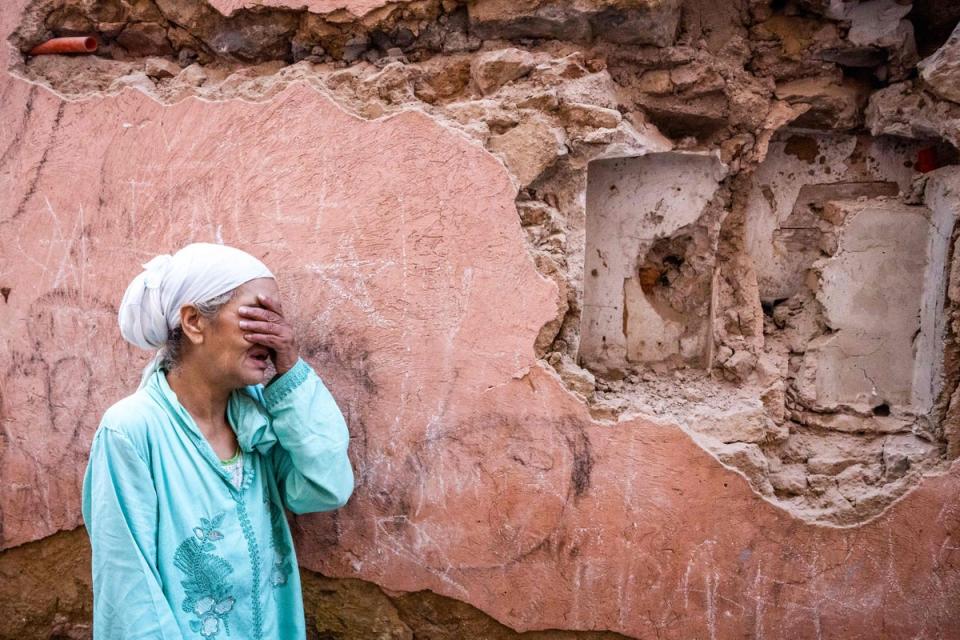
Tremors were felt in Huelva and Jaen in southern Spain, as well as Portugal and Algeria, the Portuguese Institute for Sea and Atmosphere and Algeria’s Civil Defence agency said.
Rescuers stood atop the pancaked floors of one building in Amizmiz, bits of carpet and furniture protruding from the rubble. A long queue formed outside the only open shop as people sought supplies. Underlining the challenges facing rescuers, fallen boulders blocked a road from Amizmiz to a nearby village.
Nearly all the houses in the area of Asni, some 40km (25 miles) south of Marrakech, were damaged, and villagers were preparing to spend the night outside. Food was in short supply as roofs had collapsed on kitchens, said villager Mohamed Ouhammo.
Montasir Itri, a resident of Asni, said the search was on for survivors. “Our neighbours are under the rubble and people are working hard to rescue them using available means in the village,” he told Reuters.
The Interior Ministry said the tremors hit the provinces of Al Haouz, Ouarzazate, Marrakech, Azilal, Chichaoua, and Taroudant. Officials urged residents to remain calm.
Locals shared videos on social media platforms showing the collapsed buildings, including the famous red walls surrounding the old city of Marrakech, a Unesco World Heritage site.
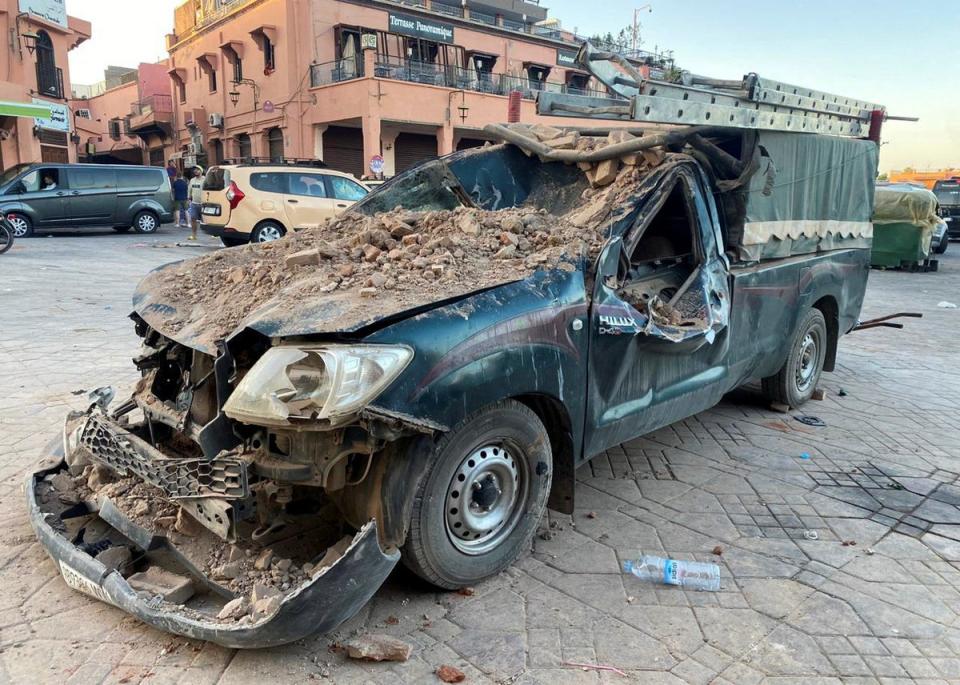
In Marrakech, where 13 people were confirmed dead, injured people arrived from the surrounding areas seeking treatment. In the heart of its old city, a mosque minaret had fallen in Jemaa al-Fna Square.
Morocco declared three days of national mourning, during which the national flag will be flown at half staff throughout the country, the royal court said on Saturday.
The Moroccan armed forces will deploy rescue teams to provide affected areas with clean drinking water, food supplies, tents and blankets, it added.
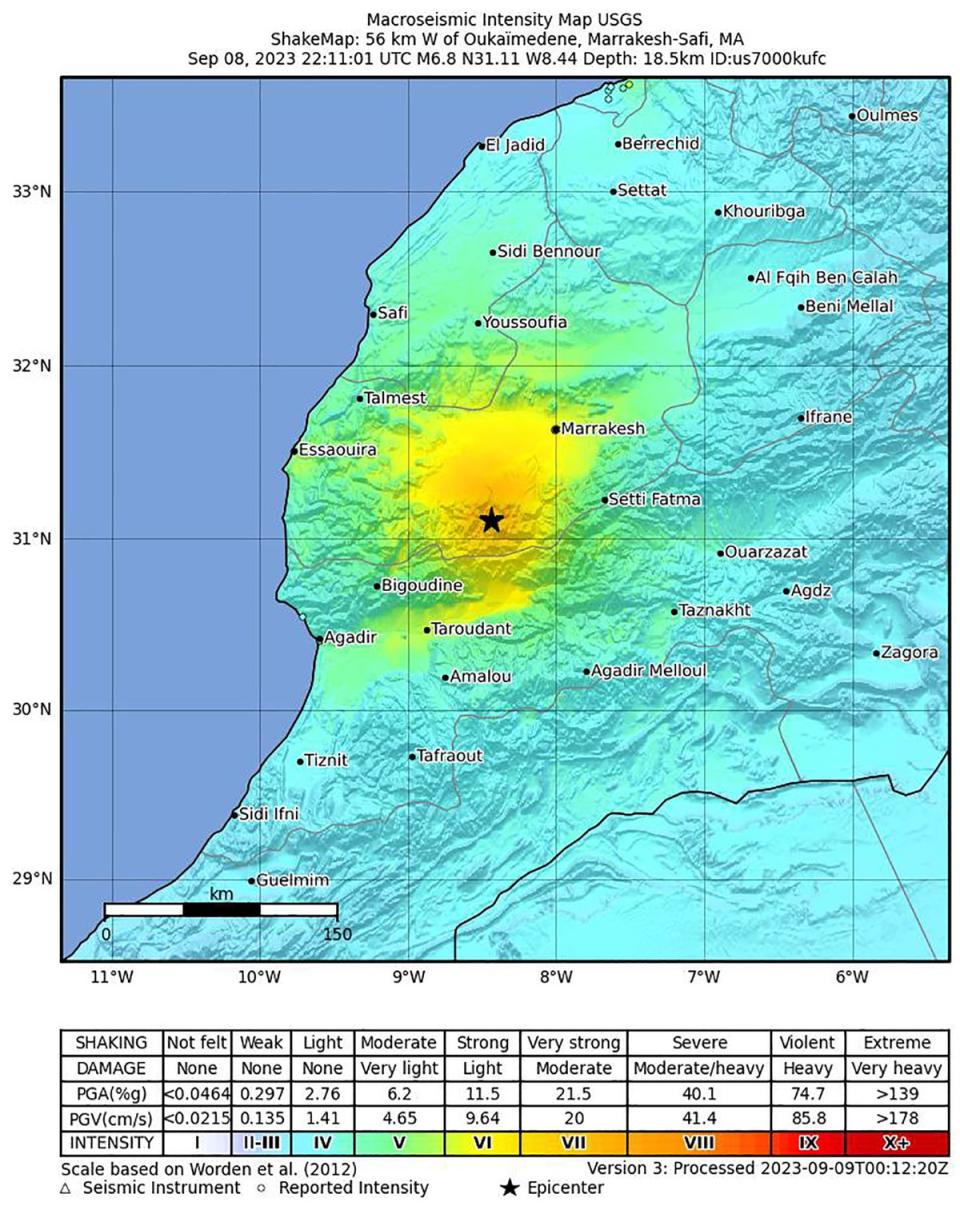
The UN said it “is ready to assist the government of Morocco in its efforts to assist the impacted population”.
The European Union’s commissioner for crisis management Janez Lenarcic said the EU is “ready to provide any assistance necessary”.
“Central Morocco has been hit by a devastating earthquake taking a heavy toll on human life,” Mr Lenarcic said.
The G20 summit, that kicked off on Saturday in India began with a condolence message from prime minister Narendra Modi. “Before starting the official proceedings, I would like to express my condolences to the people impacted by the earthquake in Morocco,” Mr Modi said.
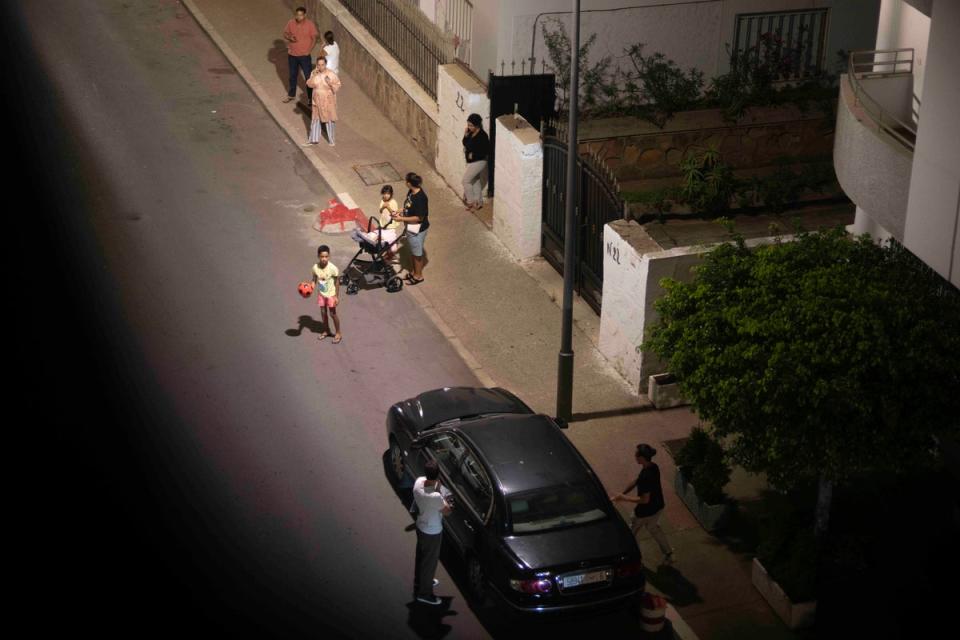
“The world is with Morocco and we are really to provide them with all the possible help.”
Turkey, where powerful earthquakes in February killed more than 50,000 people, was among the other nations expressing solidarity and offering to provide support.
Algeria, which broke off ties with Morocco in 2021 after escalating tensions between the countries focused on the Western Sahara conflict, said it would open airspace for humanitarian and medical flights.
Despite an outpouring of offers of help from around the world, the Moroccan government had not yet formally asked for assistance by Saturday night, a step required before outside rescue crews can deploy.
Countries have, meanwhile, called for caution for those travelling to Morocco. The US embassy in Morocco has advised American citizens to “exercise caution” for the next 24 hours in case of additional earthquakes or aftershocks.
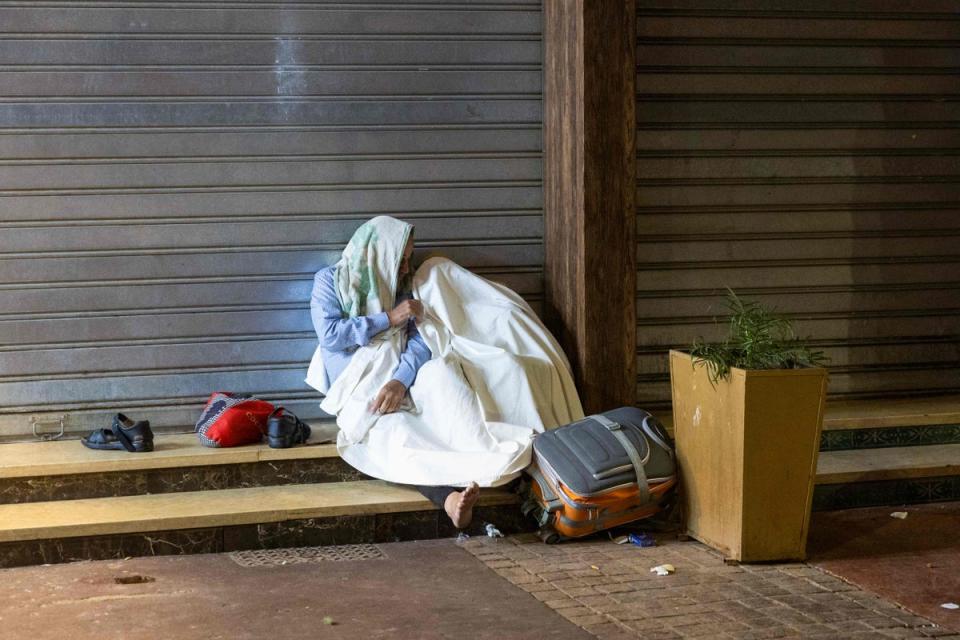
People in Morocco’s capital city of Rabat, about 350 km (217 miles) north of Ighil, and in the coastal town of Imsouane, about 180 km (112 miles) to its west, also fled their homes, fearing a stronger quake.
In Casablanca, some 250 km (155 miles) north of Ighil, people who spent the night in the streets were too scared to return home.
"The house rocked aggressively, everyone was scared," said resident Mohamed Taqafi.
Earthquakes are relatively rare in North Africa. In 1960, a magnitude 5.8 tremor struck near the Moroccan city of Agadir and caused thousands of deaths. That quake prompted changes in construction rules in Morocco, but many buildings, especially rural homes, are not built to withstand such tremors.
In 2004, a 6.4 magnitude earthquake near the Mediterranean coastal city of Al Hoceima left more than 600 dead.
Associated Press and Reuters contributed to this report


